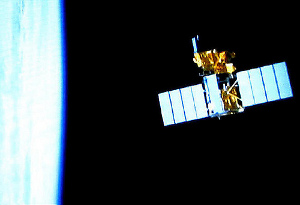 WIRED– The Pentagon’s top researchers have rushed a classified and controversial intelligence program into Afghanistan. Known as “Nexus 7,” and previously undisclosed as a war-zone surveillance effort, it ties together everything from spy radars to fruit prices in order to glean clues about Afghan instability.
WIRED– The Pentagon’s top researchers have rushed a classified and controversial intelligence program into Afghanistan. Known as “Nexus 7,” and previously undisclosed as a war-zone surveillance effort, it ties together everything from spy radars to fruit prices in order to glean clues about Afghan instability.
The program has been pushed hard by the leadership of the Defense Advanced Research Projects Agency. They see Nexus 7 as both a breakthrough data-analysis tool and an opportunity to move beyond its traditional, long-range research role and into a more active wartime mission.
But those efforts are drawing fire from some frontline intel operators who see Nexus 7 as little more than a glorified grad-school project, wasting tens of millions on duplicative technology that has nothing to do with stopping the Taliban.
“There are no models and there are no algorithms,” says one person familiar with the program, echoing numerous others who spoke on condition of anonymity because they are not authorized to discuss the program publicly. Just “200 lines of buggy Python code to do what imagery analysts do every day.”
During a decade of war, American forces have gathered exabytes of information on its enemies in Afghanistan. Nexus 7 aims to tap that data to find out more about the U.S.’ alleged friends: the people of Afghanistan, and how they interact with their government and with one another.
Read more about Exclusive: Inside Darpa’s Secret Afghan Spy Machine
© 2011 Wired
Photo by Flickr user RayVanEng










